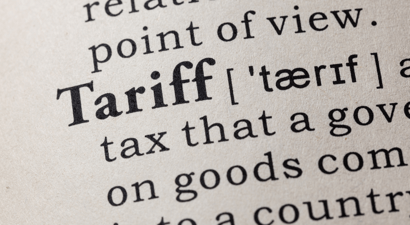The National Consumer Commission - The new bad boys in the textile industry
The National Consumer Commission (“NCC”) was established in terms of sub-section 85(1) of the Consumer Protection Act 68 of 2008 ("CPA"). The primary function of the NCC is to protect the rights of consumers, contained in the CPA. The NCC has wide powers to fulfil its mandate.
Section 22 of the CPA deals with labelling requirements for textile goods. Sub-Sections (1) to (3) are directed at ensuring that trade descriptions are accurate, understandable and do not mislead consumers.
Sub-section 24(2)(b) of the CPA prohibits a person from altering, defacing, covering, removing, or obscuring a trade description or trademark applied to any goods:
“In a manner calculated to mislead consumers.”
Sub-sections 24(4) to (5) of the CPA, read with Regulation 6, direct which goods require a trade description and what information a trade description should contain, for example the origin of the product.
The labelling requirements are designed to protect and inform consumers on the textile products they purchase, allowing them to make well informed purchases. Whether consumers read these labels and/or trade descriptions prior to purchasing goods, is another story altogether.
Therefore, it makes logical sense that provided trade descriptions are placed on products before being sold to consumers, consumers are protected. The NCC takes a different, much stricter view. Its view is that if the goods do not have compliant labels at time of importation, the goods are non-compliant and cannot be allowed to enter home consumption. The NCC does not permit labels to be placed on the goods after importation but before being sold to consumers. The NCC strictly exercises this view and provides the importer with two costly options:
- The goods must be destroyed, at the cost of the importer; or
- The goods must be re-exported off the African continent, at the cost of the importer.
Section 100 (1) of the CPA provides that, the NCC may issue a compliance notice in the prescribed form to a person or association whom the NCC on reasonable grounds believes has engaged in prohibited conduct (i.e., non-compliant labelling). This notice remains in force until set aside by the the National consumer Tribunal (“NCT”), or a court upon review of a Tribunal decision. In terms of subsection (6), the NCC may either:
- approach the Tribunal for the imposition of an administrative fine (the administrative fine will be which ever is greater of R1 million or 10% of the importer’s Annual turn-over); or
- refer the matter to the National Prosecuting Authority,
if a person to whom the compliance notice is issued, fails to comply with the notice.
In the SCOOP CLOTHING CC v NATIONAL CONSUMER COMMISSION Case Number: NCT/178145/2021/101(1) (“Scoop”), the NCT held that:
“Compliance with the CPA means that the goods must be correctly labelled not that they must be destroyed.”
In our view such an approach confirms that the discretion exercised for each compliance notice must be on a case-by-case basis and that the Commission should consider whether there are other less drastic or more proportional powers available to secure compliance with the CPA.”
On this set of facts the approach should be for the compliance notice to allow the Applicant to apply for the conditional release of the goods to enable the Applicant to rectify any problems which may exist with the labelling of the goods.”
The case is on appeal. Those in the textile industry need to be careful of these bad boys. What should you do when they come for you? Call Shepstone & Wylie!





